With millions of web apps out there, the website designing and development industry is the most influential and growth-oriented industry in today’s world. To have a successful online presence, your website should be 360 degrees capable to attract & satisfy your customers. There are various factors that decide the fate of your website, including usability, speed, aesthetics, content, maintenance, device compatibility, and more.
With the evolving website technologies, web developers, today, are relying on framing websites with the trendiest technologies/frameworks so as to make your online presence offer the best to you.
Among so many web app development frameworks in the market, choosing the best web application framework is a daunting task. Each framework has its peculiarities, pros, and cons, as well as the best scopes of application. While a wiser choice of a framework can accelerate your web business growth, a wrong decision can cost you extra time & budget.
Below we have gathered a list of top web app development frameworks of 2022 that have grabbed immense popularity around the world this year.
Top Web Development (front-end/back-end) Frameworks 2022
Following are the most used web development technologies worth considering in 2022 and beyond:
- Angular
- Vue.js
- React
- Express (Node.js)
- Ruby on Rails
- Django
- ASP.Net
- Spring
- Laravel
- Meteor
1. Angular
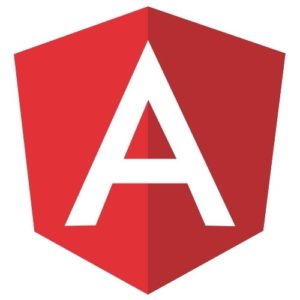
Angular
Angular, launched in 2010, was initially developed by Google. This open-source framework is useful to build high-performance and powerful large-scale web applications. If we compare this framework with other web application frameworks, Angular offers much flexibility and a richer set of functions. Angularjs development apps are easy to maintain. The two-way binding and dependency make Angular a great option for bulky apps.
Pros:
- Two-way data binding facility
- DOM manipulation
- User interface with HTML
- Requires less code
- Model View Controller (MVC) structure
- Improved server performance
- Designs a faster loading page
- Faster application prototyping
- Best to create SEO friendly sites
- Best to develop single-page applications
Cons:
- It takes time to learn
- JavaScript support mandatory
- Inexperience with MVC
- Limitations of the routers
- Possible time consumption
- Difficult to use features
2. Vue.js

Vue.js
The USP of the Vue.js framework is its smaller size. With the size being just 20KB, Vue.js is one of the most lightweight frameworks. Released in 2014, Vue.js is still new and is growing in popularity steadily. Some of its best features include simple structure, versatility & good documentation. Vue.js is best used for building UIs (User Interface) and SPAs (Single Page Applications).
Pros:
- Smaller in size
- Easy to learn
- Flexible for coding
- Easy to create the faster application
- Easy to integrate features
- Compatible with Typescripts
- Best to design small size applications
- Can be used as a library and a fully-fledged framework
- Two-way data binding
- Best for SPAs & Real-time apps
Cons:
- The community is not large
- Codes are written in Chinese
- Difficult to work with bigger projects
- Lacks common Plugins/Components
- Evolving Fast. Quickly become outdated
- Lack of support for large-scale projects
- Still a young framework. Lack of experienced developers
- Over-flexibility causes more errors and irregularity within the code
3. React Native
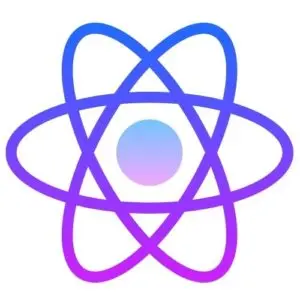
React Native
Developed & maintained by Facebook, React framework is one of the popular front-end development libraries based on JavaScript. It is more or less similar to Angular one- both are mature have strong communities and both are able to run massive web apps. Developing your web app with React native development gets you plenty of benefits right from increasing productivity and shortening development time to reducing app maintenance costs.
Pros:
- Uses Declarative method for programming
- ReactJS code components are re-usable
- Compatible with HTML
- Prompt rendering
- Allows faster data flow
- Supports virtual DOM programming
- SEO friendly features
- Easy to create dynamic web apps
- ReactJS utilizes a rich JavaScript library
- Offer full freedom to developers
- Ease of migration
Cons:
- Supports no isomorphic approach
- Large library
- Requires in-depth knowledge of integration
- Complex JSX
- limitation of documentation within React
- Not so easy manuals
- Needs additional libraries for routing, API interaction, etc.
- The pace of development is very high.
4. Express (Node.js)
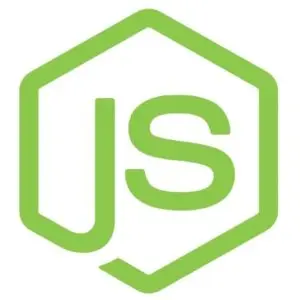
Nodejs
Express.js is a very convenient and easy to use framework for Node.js. The framework simplifies the process of development by offering a set of useful tools, features, packages, and plugins. Being fast, flexible, and minimal, Express JS development is hugely beneficial for mobile and web app development.
Pros:
- Works with HTTP methods
- Creates robust API efficiently
- Several frameworks depend on Express
- Provides high performance
- Best to develop single page applications
- Best to create multipage applications
- Can build a great hybrid web application
- Offers features like the creation of REST API server
- Best to develop real time apps
Cons:
- Difficult code structure
- Lack of strong Library support system
- Not enough middleware
- Not efficient in handling CPU-intensive apps
- Asynchronous Programming Model
- API is Not Stable
5. Ruby on Rails
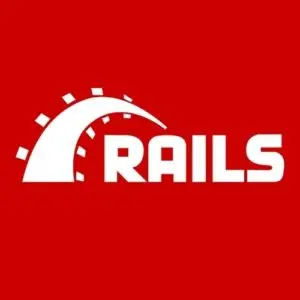
Ruby on Rails
Ruby on Rails is a well-known & finest backend web development framework you might consider for your next web project. The framework helps the developers to develop codes in an organized way with its great collection of code, tools, and utilities. Being a server-side framework, Ruby on Rails is best to make dynamic applications with integrated solutions.
Pros:
- MVC structure helps to connect the parts which are interconnected
- AJAX library offers the latest techniques
- Large community
- Easy compatibility with front-end frameworks
- Big libraries that ease down the work
- Hassle-free debugging
- Components are reusable
- URL can be customized
- Less coding creates faster apps & saves cost
- Highly secure framework
Cons:
- Requires zero mistake policy for the developers
- Lacks flexibility
- It takes a long time to boot
- Not enough documentation
- Relatively slow runtime speed
6. Django
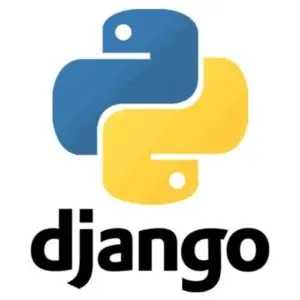
DJango
Being written in Python language, it comes with several benefits that make it the most used framework for application development. This framework mainly focuses on the pluggability and reusability of the components & develops web applications with clean, readable, and maintainable code. Released in 2005, the framework describes itself as the “web framework for perfectionists with deadlines.”
Pros:
- Supports MVC programming
- Compatible with Major Operating Systems
- Rapid code writing
- Reliability of Python
- Ensures complete finish
- Provides better scalability
- Offers High end security
- The easy syntax for easy coding
- Best to create startup apps
- Easy to learn
Cons:
- Limitations in routing
- Supports monolithic structure
- ORM makes things difficult
- In-depth knowledge of this system is required
- Not that faster
- Impacts Performance of Small Web Applications
- Cannot Handle Multiple Requests Simultaneously
7. ASP. NET
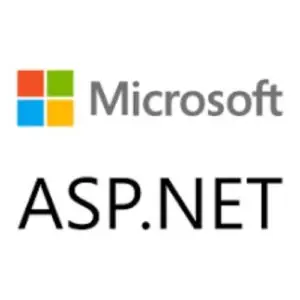
ASP.net
ASP.NET is an open-source, cross-platform server-side web development framework designed and supported by Microsoft. The framework is used for creating easy mobile and web applications. Choose this framework if you are seeking to build modern cloud-based internet-connected applications, such as web apps, IoT apps, and mobile backends.
Pros:
- Requires less coding for larger applications
- Highly secured & easy to maintain
- Large community
- Maintains and writes source code
- Detects infinite loop easily
- Advanced features
- Best to create high-performance cross-platform apps
- Best for lightweight applications
- Develops easy to test applications
- Flexible deployment and easy maintenance
8. Spring
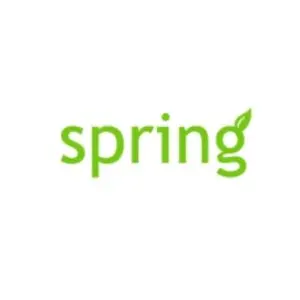
Spring
Right from the introduction, Spring has got immense popularity and appreciation from developers all over the Java community. Spring best develops robust applications and is considered one of the best lightweight frameworks. Look at its advantages and disadvantages below.
Pros:
- Works with POJO
- Flexible enough for configuration
- Well designed MVC framework
- No web app or server is needed
- Uses Spring AOP module
- Ease of Testability
- Best to build a Java application
- Create high performance and reusable code
Cons:
- Huge amount of classes and tools
- No clear guidelines
- Different parallel mechanisms
- Complex to use
- High learning curve
- Lots of XM
9. Meteor

METEOR
Meteor is considered one of the best JavaScript frameworks, which is popular for faster software development. This is an open-source JavaScript framework that is written in Node.JS. The framework has been highly popular since its launch in 2011.
The framework is characterized by the utilization of frontend and backend JS, as well as other static assets such as HTML and CSS to build highly reactive UIs. The framework offers integration capability with champions like AngularJS, Apache Cordova, React, and others thus accelerating the overall web app development for versatile platforms.
Pros:
- Rapid web development
- The abundance of Packages and Libraries
- Uses one language to develop both front-end and backend
- Helps to develop a real-time application
- Best to develop a prototype application
- Easy to Learn
- Seamless Client-Server Communication
- Offers real-time testing tool-Velocity
Cons:
- Excessive hype
- Supports no MySQL
- Less scalability
- Lack of structure and conventions
- Absence of a native widget library
- Weak network connection flexibility
10. Laravel

Laravel
Laravel is a lightweight framework and is one of the prominent PHP frameworks for web development that follows the Model-View-Controller or MVC model. The framework well handles day-to-day operations like authentication, routing, sessions, and caching. The framework has less inbuilt support as compared to Django and Ruby on Rails.
Pros:
- Use-friendly features
- Uses blade template engine
- Reuses code. Faster development
- Efficient for business and industry website development
- Best use for easy to use syntax
- Develop robust application
Cons:
- Database queries slow down the performance
- Not perfect for e-commerce sites
- Supports no proper functionalities
- Lack of inbuilt support
- can be complex initially
- not as mature as many other frameworks
Conclusion
So, now that you know the most popular web app frameworks in 2022, it’s high time to consider one for your next web project. The combined power of front-end, back-end, and accelerators will give your business the edge you require. Looking to build your web app using the trendiest technology stacks above? Contact us!
QSS Technosoft is one of the best Web Development companies, that carries immense experience in developing web applications using multiple technologies and frameworks. We are always looking forward to trying new and upcoming technologies and we train our resources on these new technologies. Our developers are affluent in Angular, React, Java, JavaScript, Python, .Net, Node, etc.
Let’s connect to discuss the best frameworks that can accelerate the growth of your new web project.
About Author:
Rashmi Kanti is a passionate content writer & a blogger having written numerous blogs for IT domain. Being into the Blogging world for the past 4 years, she is presently contributing technology loaded articles & blogs regularly to QSS Technosoft. Rashmi has a proficient knowledge of the latest market trends in the mobile & web applications and expresses herself a big technology geek.

Top 10 Web Application Development Frameworks (Latest Updated)